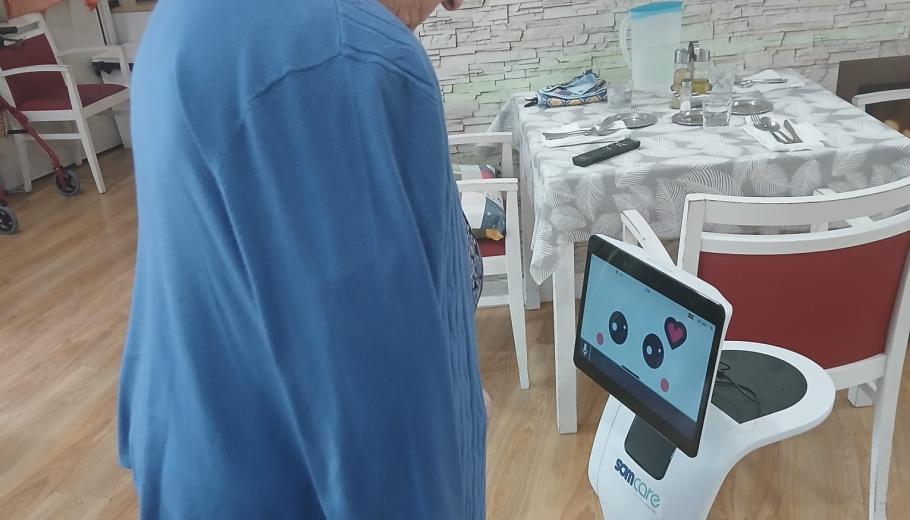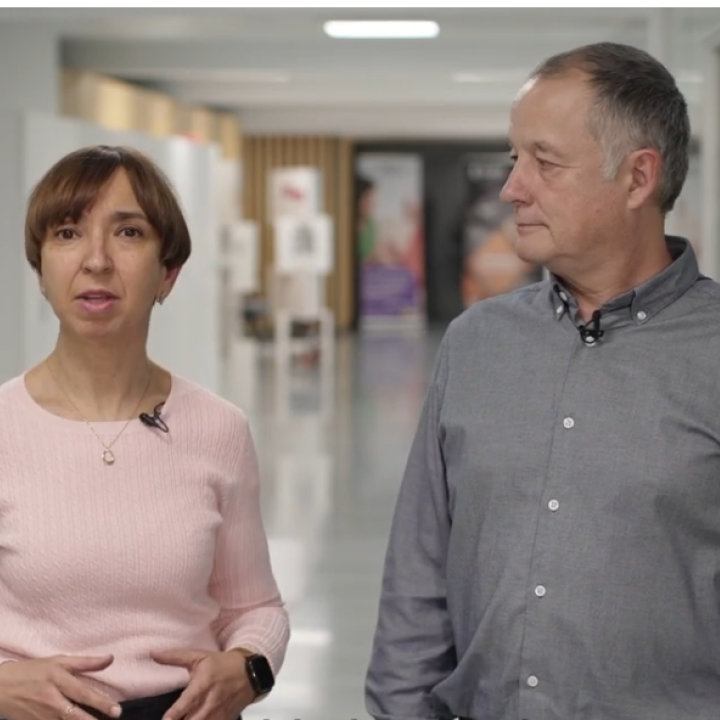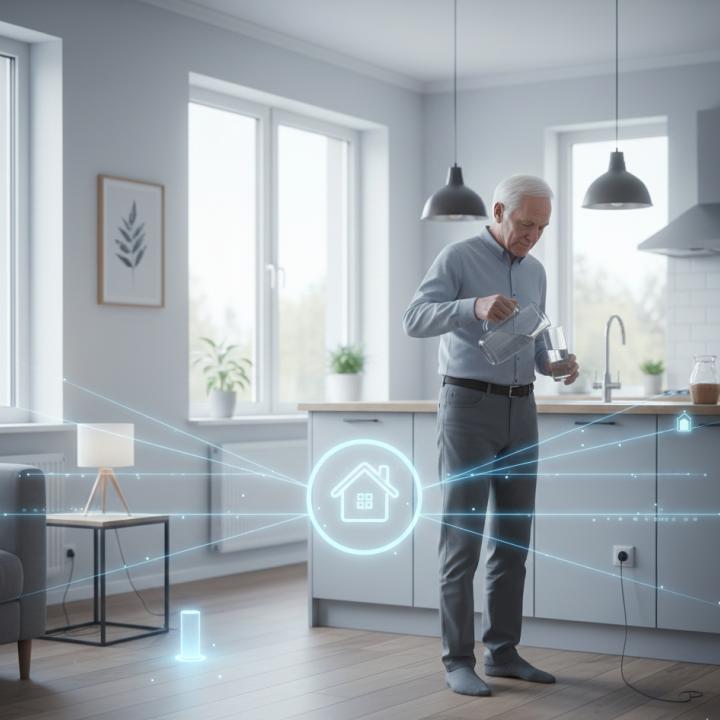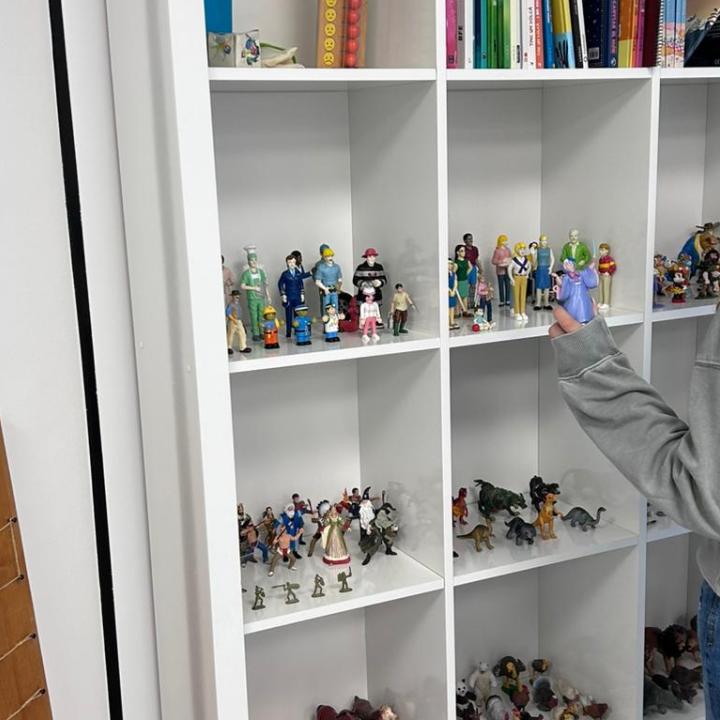One of these, started last April, is the application of the Tema robot in residences, a project that Suara Cooperativa, through the Social Digital Lab, has carried out with the technology of the Saltó Group and with intercooperation with the Robotics Institute and Industrial Informatics from the Polytechnic University of Catalonia (UPC).
Within the framework of this project, financed with a Singulares subsidy from the Department of Business and Labor through the Directorate of Social Economy, the robots have already begun to work in the residences of Colonia Güell in Santa Coloma de Cervelló (Baix Llobregat) and Torreblanca de Sant Joan de las Fuentes (La Garrotxa) of Suara Cooperativa, where they have become a support tool for the workers of the centers when it comes to accompanying and caring for older people
Among other things, the robot issues reminders to people about their medical appointments or the medications they need to learn; connects them with their family or friends through video tricks; encourages and accompanies them to perform different physical exercises; or stimulates them cognitively through games or exercises. In addition, it also includes alert systems to prevent or detect falls, which improves people's safety.
Through all these functions, which complement the tasks carried out by the workers in the residential centers, at Temi it helps to improve the autonomy of older people, offer them greater security and improve their social interaction with other people in their immediate environment. through video calls.
Robots home
This, however, is not the only robotics experience that Suara Cooperativa has launched to improve the support of older people. Start-up Rob-In's technology is being implemented in the homes of people who want to age at home while providing tools to people who work in home care services.
In this sense, one of the great innovations is that the caregiver will be able to introduce behavioral patterns into the robot according to the habits and customs of the person being cared for while receiving reports detailing whether these have changed, which could indicate that a process of physical or cognitive deterioration has begun. In addition, it allows caregivers, whether family members or professionals, to have real-time data on the status and activities carried out by the person in a situation of dependency and, according to this, the robot can offer them resources to improve the quality of support. What do they do.
In addition, they monitor the health of the person being cared for, as well as helping them to carry out daily life tasks or physical exercises that allow them to improve their mobility or be more in communication with their relational environment.
Discover new experiences
With the aim of improving in the field of robotics, workers in the innovation area have recently traveled to the United Kingdom where they have been able to learn about different robotics projects applied in the healthcare field.
Within the framework of this tour, organized by the Catalan network Laboratorio Abierto de Robotica Asistencial (Labora) and the English network Emergence, Suara Cooperativa, Parc Sanitari Pere Virgili, Group Saltó, IRI - Institute of Robotics and Industrial Informatics, CSIC-UPC and Eurecat - Technology Center visited and learned about the experiences of the research center Advance Wellbeing Research Center AWRC, the companies Cyber-physicall Health and Assistive Robotics Technologies Group, Robotarium and the charitable foundation Extracare Charitable Trust.
“This visit has helped us learn about different experiences of assistive robotics in the United Kingdom, which we now have to analyze if we can also extrapolate them to the pilot tests that we already have underway at Suara Cooperativa,” details Jordi Picas, director of the Innovation area. from Suara Cooperativa, which adds: “In addition, it also served to open lines of intercooperation to develop collaborative projects with different organizations.”
The Labora group was born with the desire to be an open innovation laboratory for assistive robotics so that the public administration, the world of research and academia, as well as business and start-ups intercooperate and work together to find solutions to the main social challenges. what home care entails.
As for the Emergence network, made up of 5 universities and 24 partner entities, its mission is to facilitate a sustainable ecosystem of health robotics that connects the fields of research, industry, providers and health care. This aims to build both an infrastructure and a necessary system that promotes research and development of health robotics to put it at the service of people in the most vulnerable situations.






